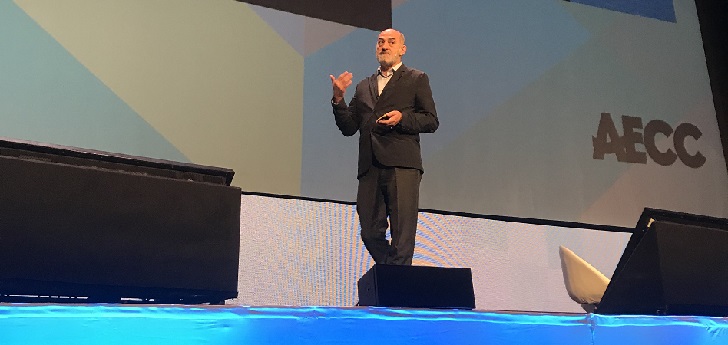José María Folache (Parfois): “Retail is an old industry that basically hasn’t changed at all”
The CEO of Parfois, with a long career in companies like Tous or El Corte Inglés, analyzed yesterday in the Spanish Congress of Shopping Centers the evolution of retail and fashion business.

“Retail is an old industry that basically hasn’t changed at all: we have to do better than our competitors to sell”. This is how José María Folache, CEO of the Portuguese group Parfois, summed up yesterday the current situation of the retail business. The executive, who participated in the Spanish Congress of Shopping Centers, said that “I cannot conceive a brand that does not know how to develop a mono-brand retail model”.
Since February 2019, Folache has been CEO of Parfois, a company he joined after leading Tous for more than six years. “I have had the fortune to participate in two similar projects in small companies that compete with giants, and in both cases there has been global and multichannel growth,” stated the executive.
In the Folache’s opinion, both Tous and Parfois base their business models on four pillars: a very well-defined value proposition, a huge differentiation, offering affordable products (jewelry or fashion) and growth based on the oil stain strategy.
“I can’t conceive a brand that doesn't know how to develop a mono-brand store model”
“Our growth is organic, and it’s based on sales increase and store expansion,” said Folache, adding that this year’s outlook is to close 2019 with between 1,070 stores and 1,100 stores. “The opening of stores is something closely linked to fast fashion,” he said.
In his opinion, one of the key elements that a fashion company should analyze is the channels it will use for expansion. “I can’t conceive a brand that doesn’t know how to develop a mono-brand store model,” he said. “You have to choose between direct business, direct sales franchise or franchise with stock in deposit depending on the risk of the country or the speed at which you want to grow,” he added.
“There are doubts regarding the profitability of online; there is a challenge with last mile logistics, there may be pressure with a consumer who is already used to receiving the product at home and returning it for free.”
“Shopping malls will continue to be the framework for a brand to grow,” Folache said. “But you have to evolve, it is no longer a place to buy, it is a place to create community,” he explained. “The client and the services are different, and we have to adapt; the brand has ceased to be the leader and now the consumer leads the way”.
“The shopping mall will continue to be the framework for a brand to grow”
What about fashion?
In Folache’s opinion, today “there are more threats than opportunities in the fashion business. Fashion is linked to consumption and consumption needs the trust of consumers and this is going down”. Is fashion in fashion? “It is no longer the first spending market for families, they prefer to spend on Netflix, a restaurant or traveling,” he added.
The CEO of Parfois explained that one of the trends in the fashion business is the pay-per-use, a system that, according to data provided by Folache, reached one billion dollars in the United States in 2018. “There is also the subscription phenomenon: we are studying a project that will send Parfois products every month to consumers for 11 euros,” he said.
Discounts and promotions were another issue in which the executive made emphasis. “It is complex to get out of the circle of promotions”. Finally, Folache expressed his opinion on sustainability. “It is a phenomenon that affects the core of retail and you have to work on it,” he said. In his opinion, the fashion business will witness “new balances in the supply”. “It is not true that markets can continue to sought for lower production prices: Asian countries are balancing, and the dollar is gaining strength,” he said.


info@themds.com
Validation policy for comments:
MDS does not perform prior verification for the publication of comments. However, to prevent anonymous comments from affecting the rights of third parties without the ability to reply, all comments require a valid email address, which won’t be visible or shared.
Enter your name and email address to be able to comment on this news: once you click on the link you will find within your verification email, your comment will be published.